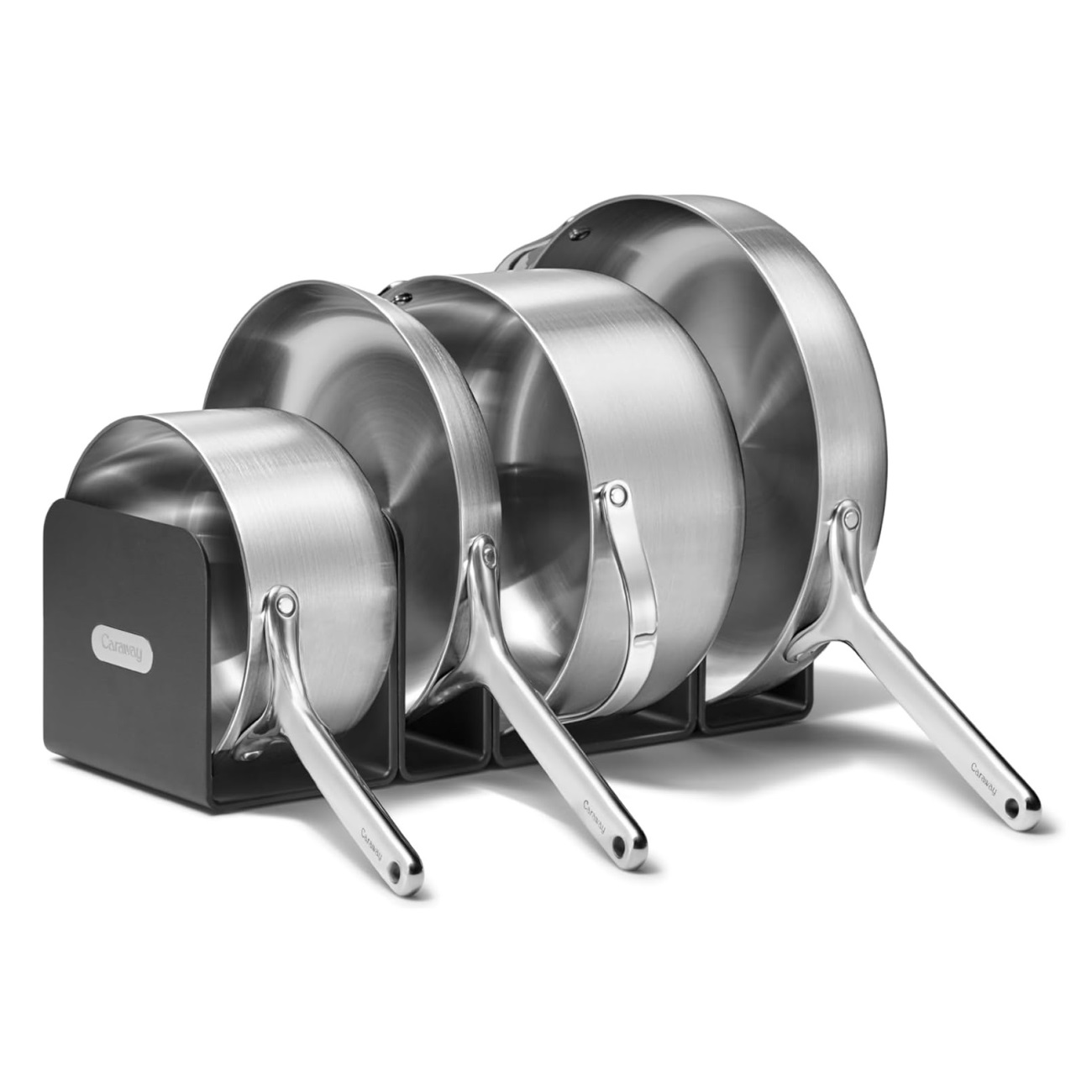Boost Your Wellness with This Hearty, Gluten-Free Lamb & Lentil Soup for Whole Health Flexi-Plan Diets
Eating for health shouldn’t be a compromise between flavor and nutrition. The gluten-free lamb & lentil soup with cilantro & parsley brings together rich flavors, balanced nutrition, and health-promoting ingredients perfect for those following the Whole Health Flexi-Plan. In this article, we will dive deep into the nutritional benefits of each ingredient, why this soup fits perfectly into a balanced diet, and how it supports overall health and well-being.
Lamb – A Nutrient-Dense Protein
Lamb is a rich source of high-quality protein, essential for muscle repair, growth, and overall body function. It contains all nine essential amino acids, making it a complete protein.
Health Benefits of Lamb:
- Iron-Rich for Energy: Lamb provides a significant amount of heme iron, which is more easily absorbed than plant-based iron, helping to prevent and combat anemia. This is particularly beneficial for individuals who may suffer from iron deficiencies.
- Boosts Immune Function: Lamb is rich in zinc, an essential mineral that supports the immune system, helps with wound healing, and promotes the breakdown of carbohydrates.
- Supports Brain Health: Lamb contains significant amounts of B vitamins, particularly B12, which is vital for brain health, preventing cognitive decline, and maintaining healthy nerve function.
Lentils – A Fiber and Protein Powerhouse
Lentils are one of the most versatile and nutritious legumes, boasting high levels of fiber, protein, and essential micronutrients. They are a fantastic gluten-free option for adding both bulk and nourishment to meals.
Health Benefits of Lentils:
- Heart Health: Lentils are an excellent source of soluble fiber, which helps reduce LDL cholesterol levels, improving cardiovascular health. Regular consumption of lentils has been linked to a lower risk of heart disease.
- Blood Sugar Control: The high fiber content in lentils slows digestion and stabilizes blood sugar levels, making them an ideal food for managing diabetes or preventing blood sugar spikes.
- Supports Gut Health: Lentils provide prebiotic fiber, which helps feed the beneficial bacteria in your gut, promoting a healthy microbiome that plays a critical role in digestion and overall health.
Cilantro – Detoxifying and Anti-Inflammatory Properties
Cilantro, a popular herb in many global cuisines, brings more than just flavor to this soup. It’s packed with antioxidants and phytochemicals that support detoxification and offer anti-inflammatory benefits.
Health Benefits of Cilantro:
- Natural Detoxifier: Cilantro is known for its ability to bind to heavy metals in the body and aid in their removal, making it a powerful detoxifying agent.
- Rich in Antioxidants: Cilantro contains compounds like quercetin that help fight free radicals and reduce oxidative stress, which contributes to aging and disease.
- Anti-Inflammatory Benefits: The anti-inflammatory properties of cilantro can help reduce inflammation in the body, supporting overall health and reducing the risk of chronic diseases.
Parsley – A Nutritional Powerhouse
Much more than a garnish, parsley offers a robust dose of vitamins and minerals that can help improve health in various ways.
Health Benefits of Parsley:
- Bone Health: Parsley is rich in vitamin K, a critical nutrient for maintaining healthy bones. Vitamin K helps in calcium absorption and improves bone density, reducing the risk of fractures.
- Supports Immune System: With high levels of vitamins A and C, parsley supports immune function and helps your body fight off infections.
- Promotes Heart Health: Parsley’s folate content can reduce levels of homocysteine in the blood, lowering the risk of heart disease.
The Power of Saffron – More Than Just Flavor
Though used in small amounts, saffron adds a unique flavor and a range of health benefits. This spice is known for its antioxidant and mood-boosting properties. [1]
Health Benefits of Saffron:
- Mood Enhancement: Saffron has been shown in studies to improve mood and may be effective in treating mild to moderate depression.
- Anti-Cancer Properties: Its high antioxidant content helps neutralize harmful free radicals in the body, which can contribute to cancer prevention.
- Boosts Cognitive Function: Saffron has neuroprotective properties and may help in improving memory and learning abilities.
Olive Oil – Heart-Healthy Fats
Olive oil is a staple of the Mediterranean diet, renowned for its heart-healthy fats, primarily monounsaturated fatty acids (MUFAs). [2]
Health Benefits of Olive Oil:
- Promotes Heart Health: The MUFAs in olive oil help reduce bad cholesterol (LDL) while boosting good cholesterol (HDL), significantly lowering the risk of heart disease.
- Anti-Inflammatory Effects: Olive oil contains powerful compounds like oleocanthal, which has been shown to reduce inflammation and mimic the effects of anti-inflammatory medications.
- Rich in Antioxidants: Olive oil is packed with antioxidants like vitamin E, which help protect the body from oxidative damage and reduce the risk of chronic diseases.
Onions – A Prebiotic Superfood
Onions are not only rich in flavor but also provide numerous health benefits. They are a potent source of prebiotic fiber, which supports gut health. [3]
Health Benefits of Onions:
- Supports Digestion: The prebiotics found in onions feed healthy gut bacteria, promoting better digestion and nutrient absorption.
- Immune-Boosting: Onions are high in vitamin C, which is essential for boosting the immune system and fighting off infections.
- Reduces Risk of Chronic Disease: Onions are rich in quercetin, a powerful antioxidant that may reduce the risk of heart disease and cancer.
Ginger – An Anti-Inflammatory Spice
Ginger is known for its anti-inflammatory and antioxidant properties, making it an excellent addition to any health-conscious diet. [4]
Health Benefits of Ginger:
- Reduces Inflammation: Ginger contains bioactive compounds like gingerol, which has powerful anti-inflammatory effects, reducing symptoms of arthritis and other inflammatory conditions.
- Aids Digestion: Ginger has been used for centuries to treat nausea, improve digestion, and prevent bloating.
- Boosts Immune Function: With its antioxidant and antimicrobial properties, ginger supports immune health, helping the body fight off infections.
Turmeric – The Golden Spice for Wellness
Turmeric, widely known for its vibrant color, is a potent anti-inflammatory spice with powerful medicinal properties.
Health Benefits of Turmeric:
- Anti-Inflammatory: The active compound in turmeric, curcumin, is a potent anti-inflammatory, reducing symptoms of inflammation-related diseases such as arthritis and heart disease.
- Improves Brain Function: Curcumin has been shown to increase levels of brain-derived neurotrophic factor (BDNF), which can delay or even reverse brain-related diseases and age-related decreases in brain function.
- Boosts Antioxidant Capacity: Turmeric enhances the body’s antioxidant defenses, protecting against oxidative stress and inflammation.
The Role of Quinoa – A Gluten-Free Grain
Replacing traditional pasta or orzo with quinoa in this recipe makes it 100% gluten-free while adding even more nutrients.
Health Benefits of Quinoa:
- Complete Protein: Quinoa is one of the few plant-based foods that provide all nine essential amino acids, making it an excellent protein source, especially for those on a plant-heavy diet.
- Supports Blood Sugar Control: The low glycemic index of quinoa helps maintain stable blood sugar levels, making it ideal for individuals managing diabetes.
- Rich in Antioxidants: Quinoa is packed with flavonoids such as quercetin and kaempferol, which have anti-inflammatory, anti-viral, and anti-cancer effects.
Hydrating Power of Broth – A Nutritional Foundation
Using a low-sodium broth base adds hydration and provides minerals without excess salt.
Health Benefits of Broth:
- Hydration: Broth provides valuable fluids that help keep the body hydrated, particularly when cooked with a variety of vegetables that release nutrients during the simmering process.
- Rich in Electrolytes: Low-sodium broth retains essential minerals like potassium and magnesium, which are key for maintaining electrolyte balance.
- Gut-Healing Properties: Bone broth (if used) is rich in collagen, which helps heal the gut lining and supports healthy digestion.
Which Diet Plans Can Eat This Soup?
This gluten-free lamb & lentil soup is suitable for a variety of diet plans, thanks to its nutrient-dense ingredients and balanced macronutrient profile. Here’s who can enjoy this meal:
- Whole Health Flexi-Plan: This soup fits perfectly with the principles of the Whole Health Flexi-Plan diet, which encourages nutrient-dense, whole foods that support overall health.
- Gluten-Free Diets: Every ingredient in this recipe is naturally gluten-free, making it safe for individuals with Celiac disease or gluten sensitivities.
- Mediterranean Diet: Rich in healthy fats, lean protein, and vegetables, this dish aligns well with the Mediterranean diet’s focus on heart health and anti-inflammatory foods.
- Low-Glycemic Diets: The combination of lamb, lentils, and quinoa provides a slow, steady release of energy, making this meal ideal for managing blood sugar levels.
- Anti-Inflammatory Diet: With ingredients like ginger, turmeric, cilantro, and olive oil, this soup is packed with anti-inflammatory compounds that help reduce chronic inflammation.
A Nutritional Powerhouse for Whole-Body Wellness
This gluten-free lamb & lentil soup with cilantro & parsley is more than just a flavorful dish—it’s a complete meal packed with health benefits that can enhance your overall wellness. Each ingredient is carefully selected not just for taste but also for its ability to support key areas of health, from immune function and digestion to heart health and inflammation reduction.
By incorporating this soup into your diet, whether you're following the Whole Health Flexi-Plan, a gluten-free lifestyle, or simply looking for a hearty and nutritious meal, you’ll be fueling your body with essential nutrients and supporting long-term wellness.




